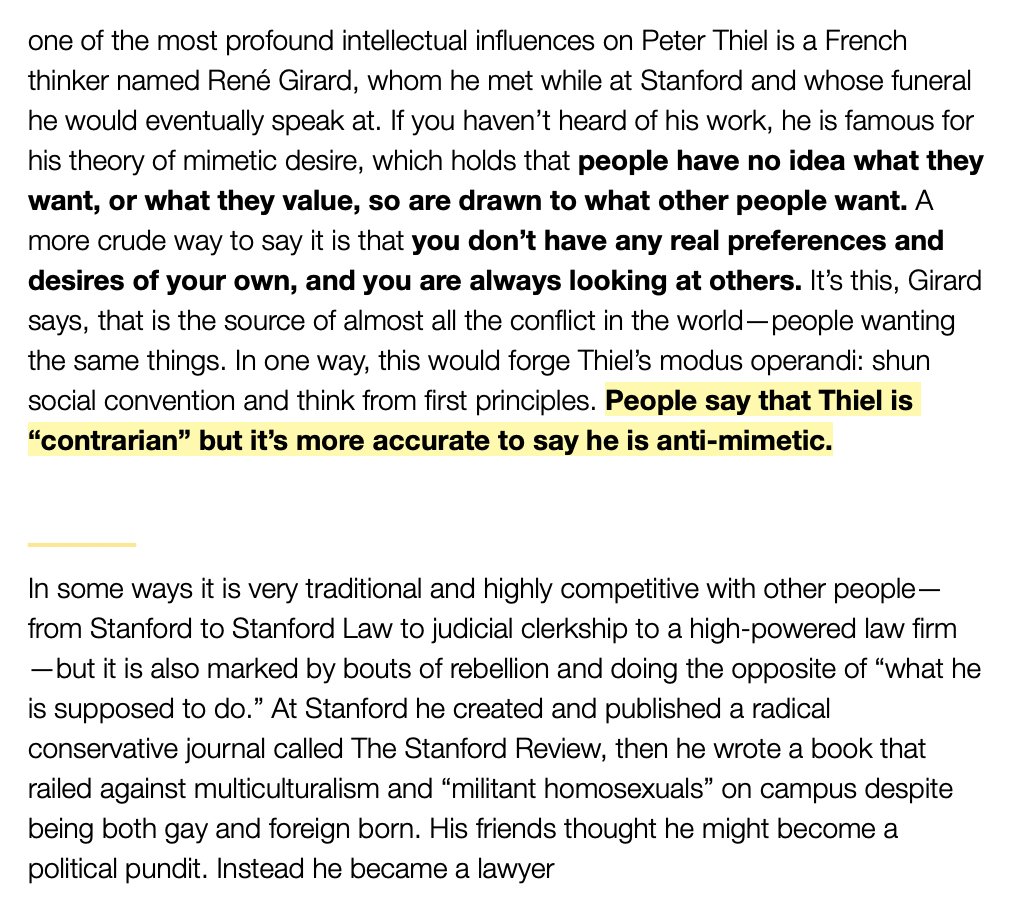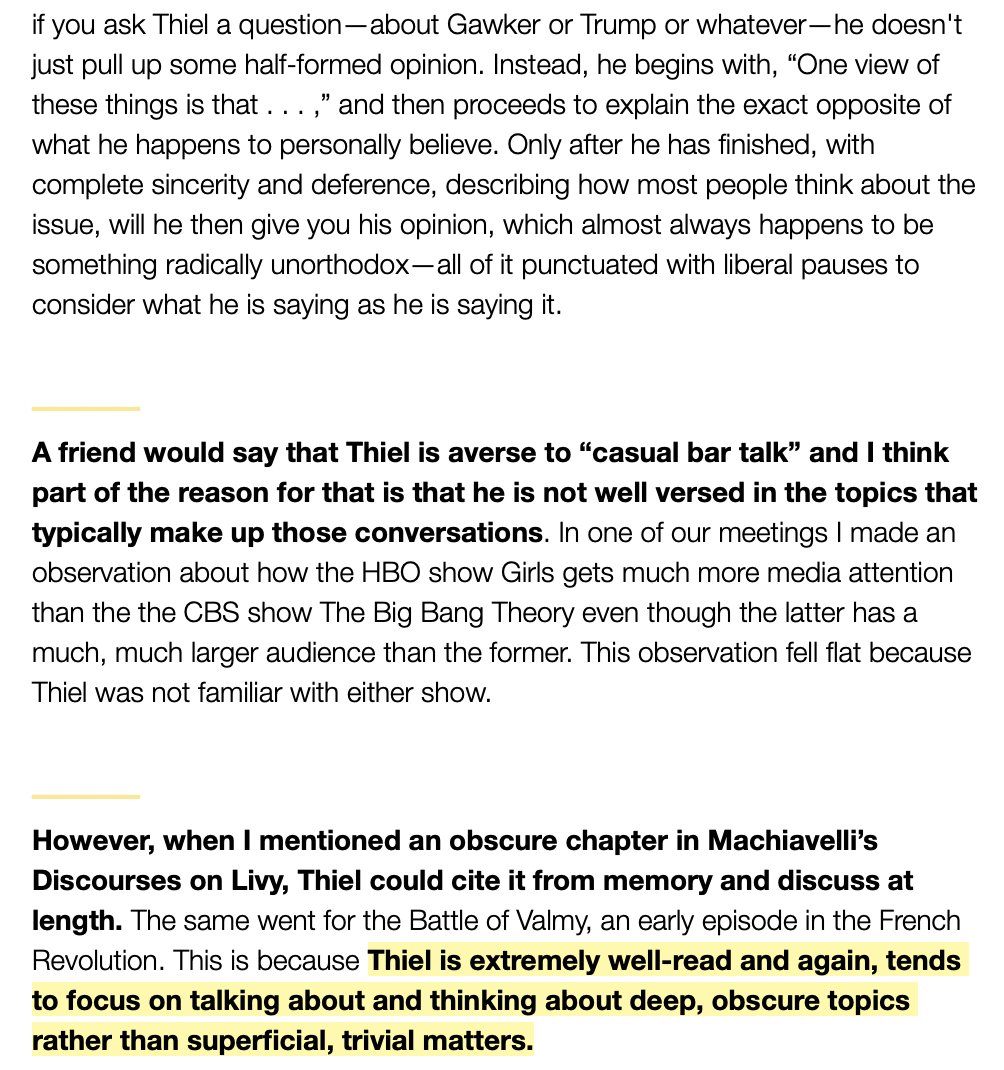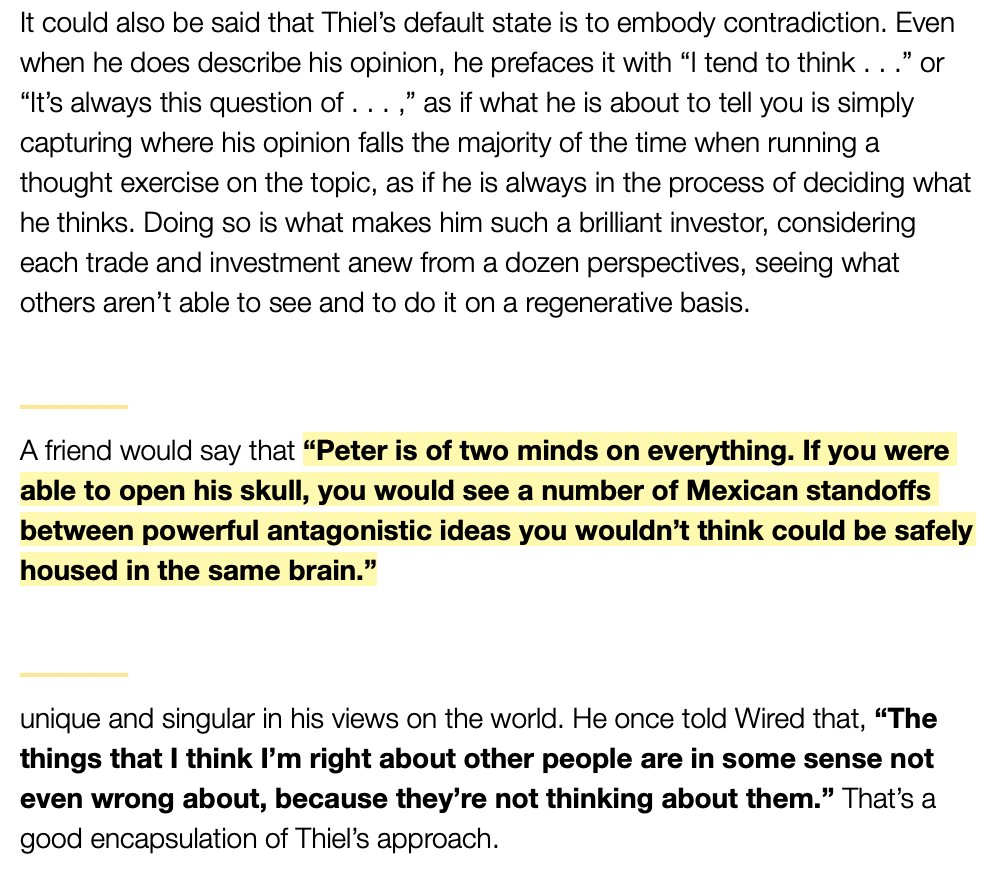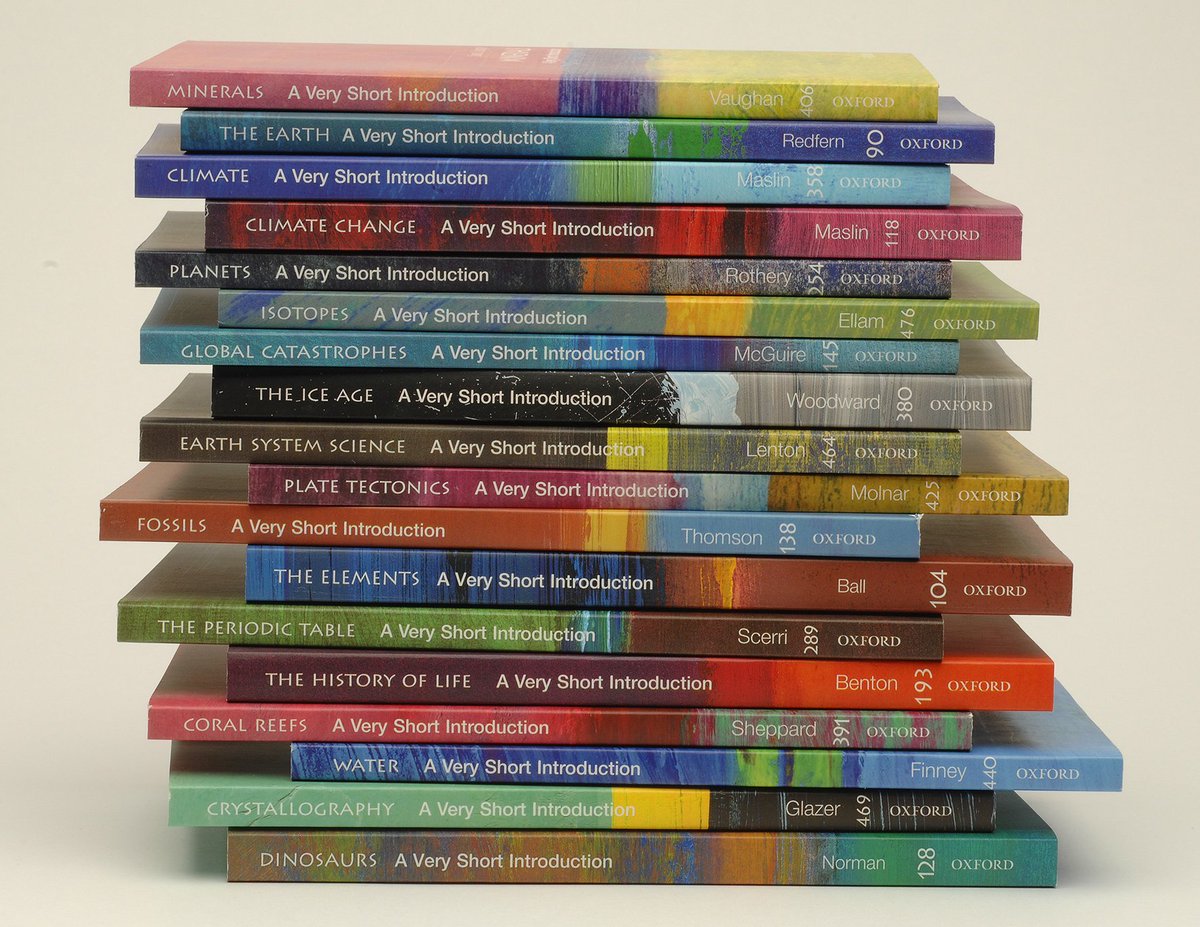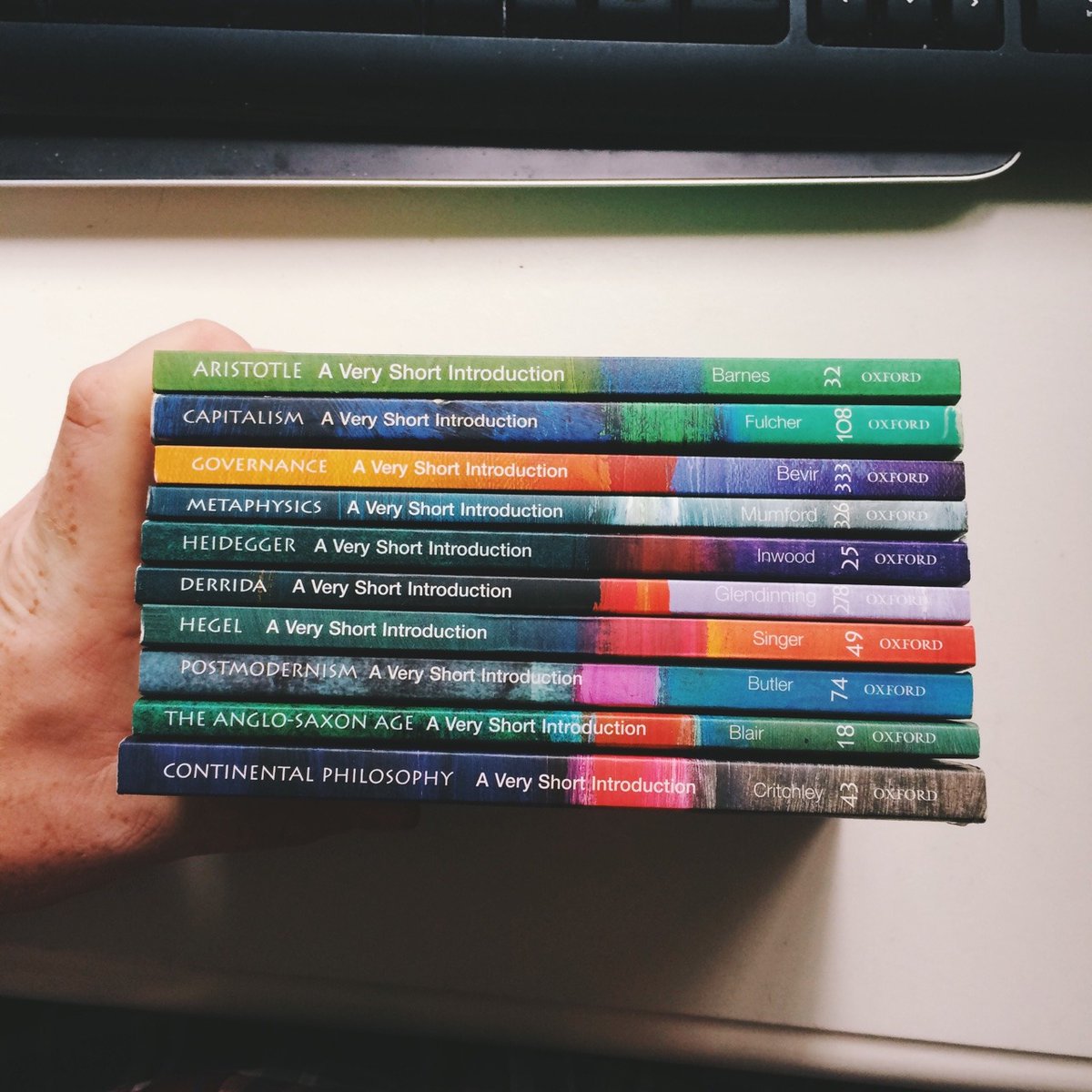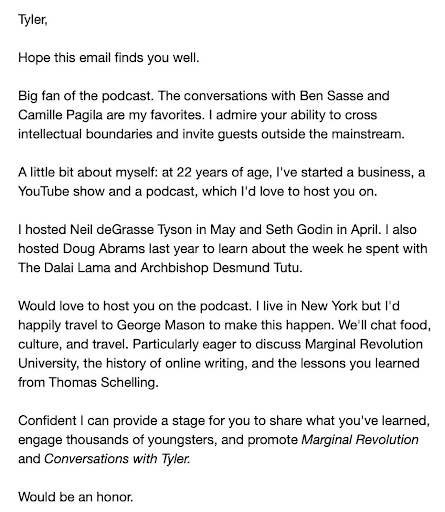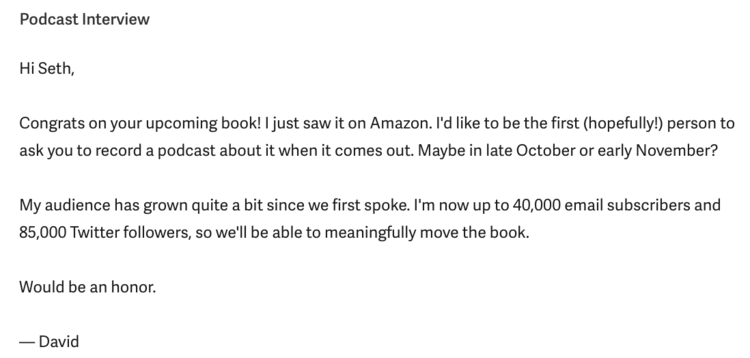
My favorite way to find interesting ideas is to look for things that don't make sense.
When something doesn't make sense, most people turn away and focus on something else. Don't do that. Think of it as an invitation to learn instead.
Here's my short article.

When something doesn't make sense, most people turn away and focus on something else. Don't do that. Think of it as an invitation to learn instead.
Here's my short article.
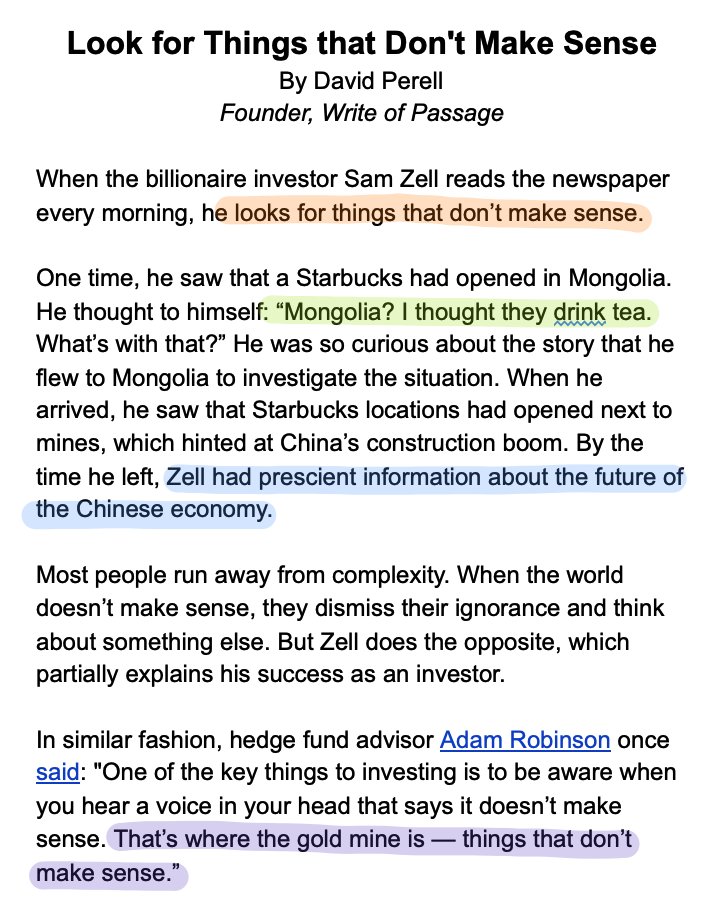
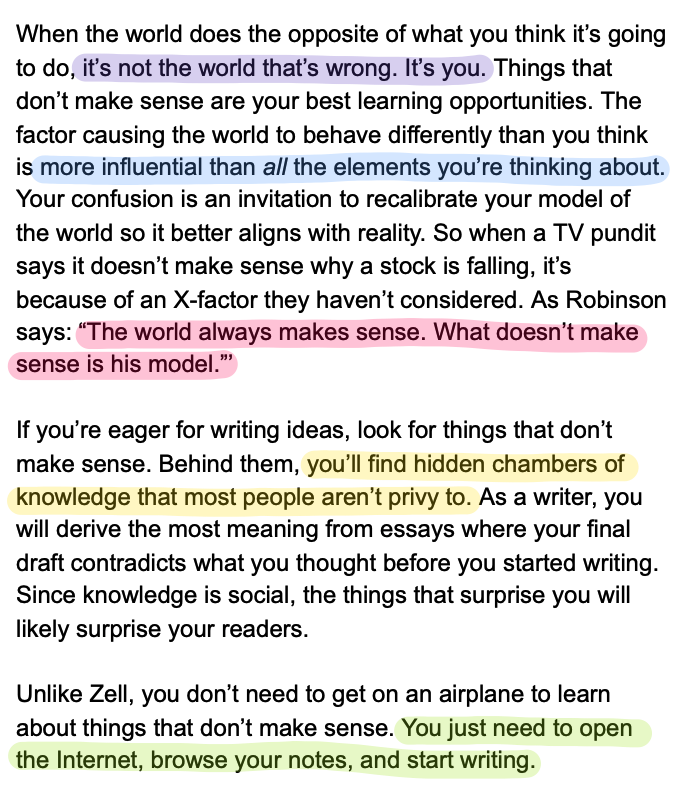
I first heard this idea in 2016 while attending an interview with @IAmAdamRobinson.
He said: "One of the key things to investing is to be aware when you hear a voice in your head that says it doesn’t make sense. That’s where the gold mine is — things that don’t make sense.”
He said: "One of the key things to investing is to be aware when you hear a voice in your head that says it doesn’t make sense. That’s where the gold mine is — things that don’t make sense.”
When the world does the opposite of what you think it’s going to do, it’s not the world that’s wrong. It’s you.
Here's the key point: The factor causing the world to behave differently than you think is more influential than ALL the ones you’re considering.
Here's the key point: The factor causing the world to behave differently than you think is more influential than ALL the ones you’re considering.
As a writer, you will derive the most meaning from essays where your final draft contradicts what you thought before you started writing.
But most people run away from complexity. When the world doesn’t make sense, they dismiss their ignorance and move onto something else.
But most people run away from complexity. When the world doesn’t make sense, they dismiss their ignorance and move onto something else.
• • •
Missing some Tweet in this thread? You can try to
force a refresh

